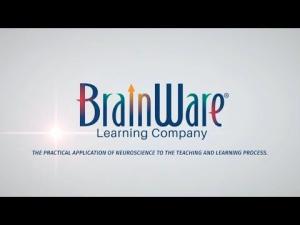BrainWare SAFARI Completes Landmark Series on Cognitive Skills and Educational Equity
Article series explores the drivers of equity in education
The series, which ran initially on the Learning Counsel, explores the drivers of equity in education. Most educators believe that students should have equitable access to technology, to effective curriculum, to well-trained teachers, and to safe and healthy learning environments. To this list of essential resources, the article series added cognitive skills – the development of each student’s capacity to learn.
According to authors Betsy Hill and Roger Stark, “A lot of discussion, especially during the pandemic, has focused on access to technology, that is, to the devices and Internet service that connect students to teachers and learning experiences. To prepare for the workplace, as well as to connect to distance learning, a device is vital. Access to effective distance instruction has also received a lot of attention, with both teachers and observers concluding that training to deliver remote learning was grossly insufficient. But a device and a trained instructor are not enough when the capacity of so many students to learn is inadequate.
“Students with weaknesses in visual processing, for example, may not “see” what they are meant to see on the screen any more than on the whiteboard at school, not because their vision is impaired but because skills like visual selective attention or the ability to rotate information in space are weak. Students with auditory processing issues may not take in any more of the auditory inputs that are being delivered to them than if the audio feed were garbled. Students with weak attention and/or working memory will only get fragments of the learning experience, whether in a classroom or online. These students aren’t getting the same access to the learning experience. They never really have a chance to learn because the processes they need to learn are underdeveloped.”
The role of cognitive skills in academic performance has not been fully appreciated, although estimates are that cognitive ability accounts for 42 percent of the variance in academic performance (Marzano), more than time on task, more than the quality of teaching or curriculum. As a recent Kennedy Forum report emphasizes, “Research in neuroscience proves that even the best teaching and curricula can have surprisingly little effect when a child’s cognitive and emotional readiness to learn is not adequately addressed.”
Another reason for urgency is to avoid losing a generation to very real consequences of the learning that has been lost. As a report from the Organization for Economic Cooperation and Development (OECD) concludes, “The one essential backdrop is, however, that the current cohort of students will be less prepared for further schooling and ultimately for the labor force than they would have been without the pandemic. Thus, for these students the old status quo will not serve them well. If these students are to be remediated, it would require improving the schools, not returning schools to where they were in 2019.”
Click on the link below to read the series.
Read the final installment here (Contains links to the first four installments)
About the series authors
Betsy Hill is President of BrainWare Learning Company, a company that builds learning capacity through the practical application of neuroscience. She is an experienced educator and has studied the connection between neuroscience and education with Dr. Patricia Wolfe (author of Brain Matters) and other experts. She is a former chair of the board of trustees at Chicago State University and teaches strategic thinking in the MBA program at Lake Forest Graduate School of Management. She holds a Master of Arts in Teaching and an MBA from Northwestern University.
Roger Stark is Co-founder and CEO of BrainWare Learning Company. For the last decade, Stark championed the effort to bring comprehensive cognitive literacy skills training and cognitive assessment within reach of everyone. It started with a very basic question: What do we know about the brain? From that initial question, he pioneered the effort to build an effective and affordable cognitive literacy skills training tool based on over 50 years of trial & error clinical collaboration. Stark also led the team that developed BrainWare SAFARI, which has become the most researched comprehensive, integrated cognitive literacy training tool delivered online in the world. Follow BrainWare Learning on Twitter @BrainWareSafari
Roger Stark
Brainware Learning Company
+1 312-420-3276
email us here
Visit us on social media:
Facebook
Twitter
LinkedIn
Brainware Learning Company video
Legal Disclaimer:
EIN Presswire provides this news content "as is" without warranty of any kind. We do not accept any responsibility or liability for the accuracy, content, images, videos, licenses, completeness, legality, or reliability of the information contained in this article. If you have any complaints or copyright issues related to this article, kindly contact the author above.

